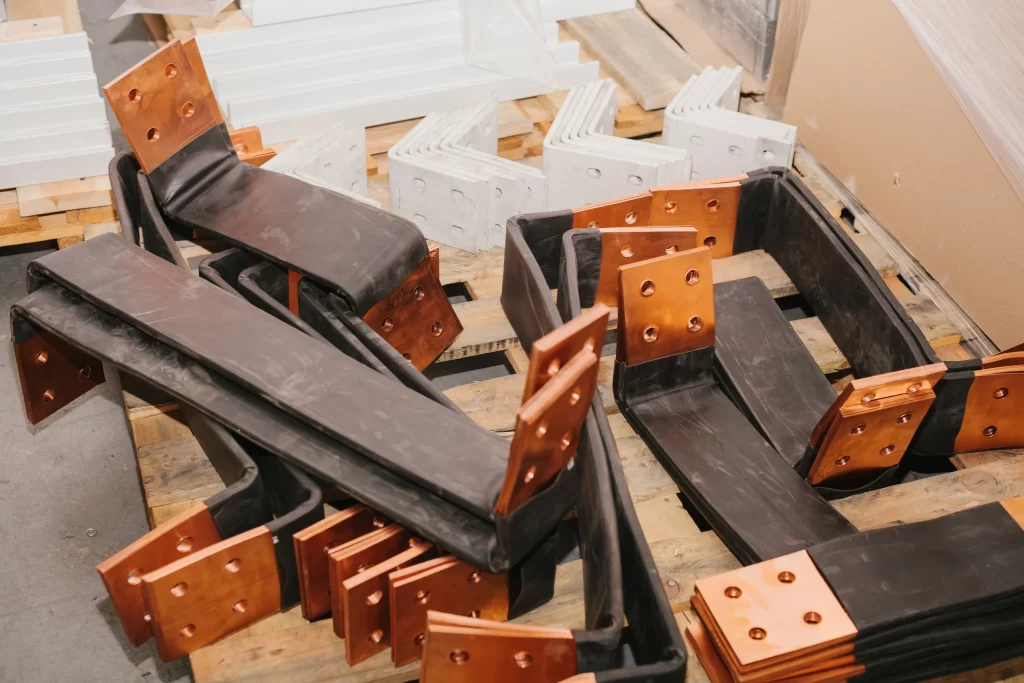



ORDER YOUR CUSTOM COPPER BUSBAR TODAY!
A busbar is an electrical component that collects current from an electrical system’s input terminals and distributes it to numerous output circuits in electrical distribution systems. It serves as a point of intersection for incoming and exiting power. Its purpose is to gather all of the electrical power in one location. They can be made of aluminium, copper, and brass and comes in rectangular strips, circular tubes, round bars, and square bars.
As a leading copper and aluminium supplier in the UK, we at ILF Products are here for you to provide high-quality custom busbar designs and manufactured products. We ensure that you get the perfect product for all applications and requirements to achieve satisfaction.
When two or more wires are linked into a single connection, this usually results in a damaged wire. Due to heat generation in the wires, the faulty electrical connection opens, and the insulation of the wire may be destroyed. This scenario could result in an open circuit, which is extremely dangerous for power distribution. In such circumstances, the various wires are appropriately linked utilising an electric busbar system to avoid open-circuit issues.
The busbars usually come in the following sizes:
Check out our copper and aluminium manufacture sizes or contact us to find the best product and solution for your needs.
Bus systems can be produced from different metals for specific applications. The most common metals used for them are aluminium, copper, and brass. Check out our comparison of copper vs aluminium.
Thanks to this, labour, maintenance and installation costs will all be reduced by using an electrical bus type. These are readily and swiftly linked to create a strong connection. Because of these pros, hospitals, factories, data centres, railways, metros, universities, technology settings, and many other applications employ these.

Busbar types include the following:
The ‘ampacity’ of a busbar is determined by its material and shape or size. Tin or silver plating on a bus bar provides a coating over the surface that helps protect against oxidation. This will not completely prevent oxidation over long periods of time, but it will significantly reduce the effects.
Copper-coated busbars, for example, are extremely durable and excellent conductors with a high-temperature damage threshold. When they are not plated, the surface oxidises and loses conductivity over time when compared to a smooth or plated surface.

An invaluable link in your supply chain delivering quality products on time, every time
FOR MORE INFORMATION TELEPHONE OUR SALES TEAM ON 01543 226816


Offering quality and precision as standard in busbar and metal component supply

Find Us